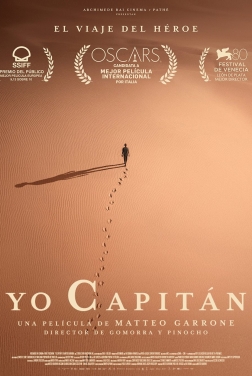Along the way, Seydou and Moussa encounter smugglers who promise them safe passage to Europe for a hefty price. Despite their initial doubts, they decide to take the risk in order to escape the poverty and violence of their home country.
As they journey through the desert, Seydou and Moussa face many challenges, including extreme heat, lack of food and water, and the constant fear of being caught by authorities. However, they also form bonds with other migrants who are on the same journey, forming a makeshift family as they navigate the dangerous terrain.
When they finally reach Libya, they are horrified by the conditions in the detention centers where migrants are held captive and subjected to inhumane treatment. Seydou and Moussa witness firsthand the brutality and exploitation that migrants endure at the hands of their captors, and they are determined to escape at all costs.
Their opportunity comes when they are taken to a makeshift boat to cross the Mediterranean Sea. Despite the overcrowded and unseaworthy vessel, Seydou and Moussa board in the hopes of reaching Europe and a better life. However, their journey takes a tragic turn when the boat begins to sink, and they are forced to fight for survival in the open sea.
As they struggle to stay afloat, Seydou and Moussa are eventually rescued by a passing ship and brought to safety. They are among the lucky few who survive the treacherous journey, but they are haunted by the memories of those who were not so fortunate.
Io Capitano is a powerful and harrowing portrayal of the refugee crisis, shining a light on the struggles and sacrifices of those who risk everything in search of a better future. Through the eyes of Seydou and Moussa, we witness the strength, resilience, and humanity of those who are forced to flee their homes in search of safety and opportunity.



